We were invited to attend the launch event of internet.org today in Mumbai. This is a joint venture between Facebook and Rcom with the aim of reaching internet connectivity to the Billion Indians who today have a mobile phone but so not have access to online services. The event started off with Mr Gurdeep Singh, Chief Executive officer of Consumer business RCom outlining how two-thirds of the mobile Indian population do not have access to basic internet services due to the price barrier and how internet.org will accelerate internet penetration in India and also open new socio-economic opportunities to users in fields like education, information, and commerce.
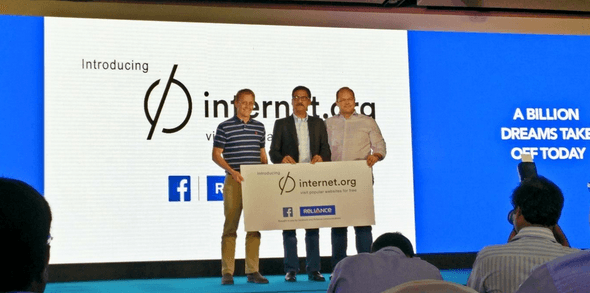
This was followed by a brief presentation by Chris Daniels, Vice president of Internet.org at Facebook, who said “Today we are excited to make the Internet available to millions of people in India through the launch of Internet.org and free basic services with Reliance. This is a big step forward in our efforts to connect everyone in India to the internet, and to help people discover new tools and information that can create more jobs and opportunities.”
After this Mr. Gurdeep Singh announced that the internet.org services had just gone live in 6 telecom circles including Gujarat, Mumbai, Maharashtra, Kerala, Andhra Pradesh(Including Telangana) and Tamil Nadu(Including Chennai). Remaining circles will go live in the next 90 days.
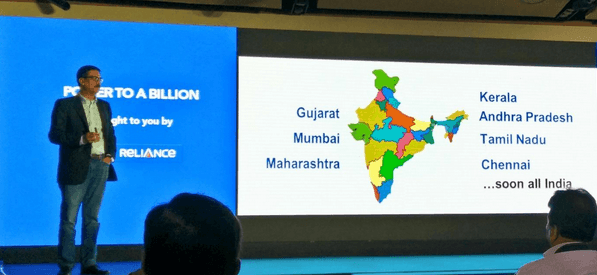
Reliance communications subscribers in these circles if using Android-powered smartphones can download the internet.org app from the play store while Windows, iOS, and feature phone users need to visit the internet.org website from their default web browser. All activity within this app or website while on Rcom network will be completely free of data usage charges.
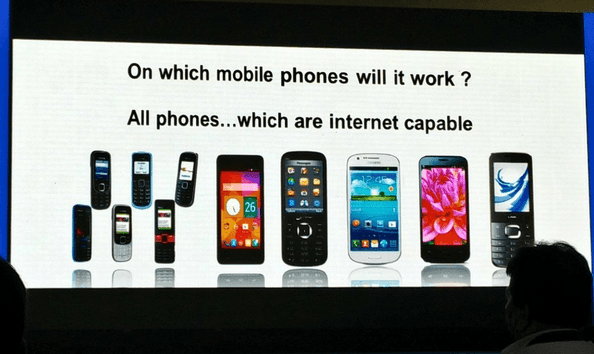
At the time of launch, there are a total of 33 web services which are being offered free of charge to the users of internet.org on Rcom network. More services may be added over the course of time. Most of these services have links to apps outside of internet.org and the user will be shown a popup notification saying that they are now leaving internet.org and basic data charges will apply if they choose to continue. The current list of free services is shown below (Excuse the image resolution).
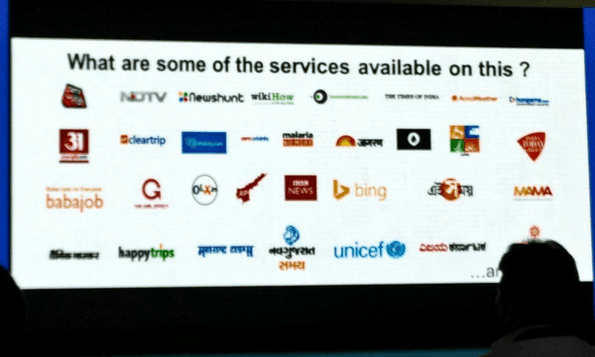
Internet.org App review and the TT perspective:
We installed the internet.org app from the play store and took it for a test drive on the Rcom GSM 3G network. We found the app to load pretty smoothly. On the start up we were presented with the usage agreement from facebook which we accepted and were taken to the main home screen where we found a list of all 33 free services.
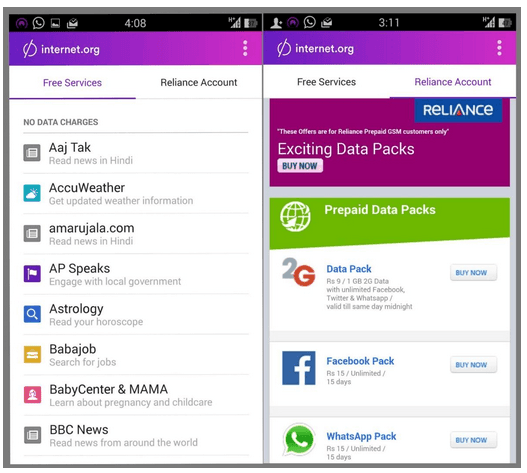
On the second screen, we were presented with the option of buying app specific short duration data packs for popular services like Facebook and WhatsApp. This is very similar to the concept of Opera web pass being offered to Idea and Vodafone subscribers. We launched the Aaj Tak app and on top of the screen we noticed the advertisement banner for downloading the Aaj Tak app from the play store and we had a similar experience with ads on some of the other services as well. Next we loaded up Bing search and searched for telecomtalk.info, we clicked on the site name from the list of search results but instead of opening the site it redirected us to the default web browser of the phone with a popup notification indicating that we are leaving internet.org and beyond this point standard data charges apply.
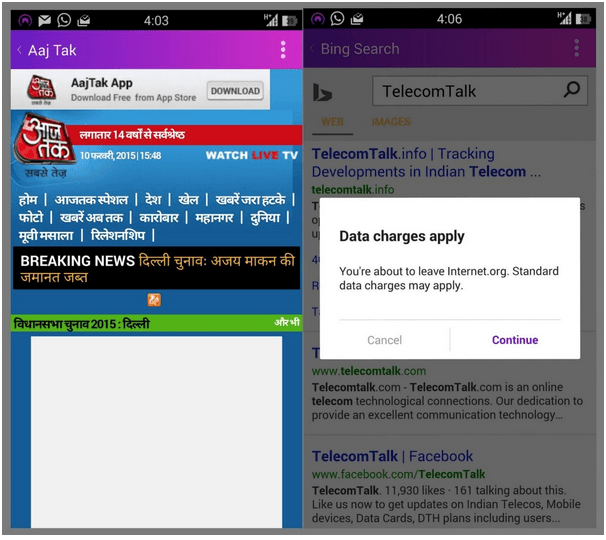
Bottom Line:
Both Facebook and Rcom are using internet.org as a ‘sprat to catch the mackerel’ or in other words a small fish is being offered as a bait to catch the larger one. By offering these services for free FB and Rcom are trying to tap the revenue from the segment of mobile users who have not opened up to paying for data services yet. The funding for offering this free internet is derived from the ads displayed in these services and once the subscriber gets used to the experience and wishes to use related services outside the internet.org app he is charged standard data charges which in turn adds to the ARPU of Rcom. It is a win-win situation for FB and Rcom, for the subscriber it can be beneficial if used tactfully and within the ecosystem of internet.org itself.















